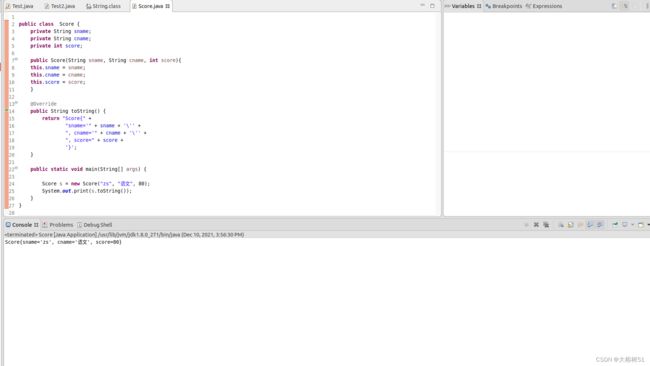我的创作纪念日
机缘
和大家分享最初成为创作者的初心
收获
- 获得了7000粉丝的关注
- 获得了很多正向的反馈,如赞、评论、阅读量
- 认识了许多志同道合的领域同行
- Android相关
public void wav2Aac(String input_file, String output_file) {
int COMPRESSED_AUDIO_FILE_BIT_RATE = 64000; // 64kbps
int SAMPLING_RATE = 16000;
int BUFFER_SIZE = 48000;
int CODEC_TIMEOUT_IN_MS = 5000;
String COMPRESSED_AUDIO_FILE_MIME_TYPE = "audio/mp4a-latm";
String LOGTAG = "WAV编码AAC";
new Thread() {
@Override
public void run() {
try {
Runtime.getRuntime().gc();
android.os.Process.setThreadPriority(android.os.Process.THREAD_PRIORITY_BACKGROUND);
File inputFile = new File(input_file);
FileInputStream fis = new FileInputStream(inputFile);
File outputFile = new File(output_file);
if (outputFile.exists()) outputFile.delete();
MediaMuxer mux = new MediaMuxer(outputFile.getAbsolutePath(), MediaMuxer.OutputFormat.MUXER_OUTPUT_MPEG_4);
MediaFormat outputFormat = MediaFormat.createAudioFormat(COMPRESSED_AUDIO_FILE_MIME_TYPE, SAMPLING_RATE, 1);
outputFormat.setInteger(MediaFormat.KEY_AAC_PROFILE, MediaCodecInfo.CodecProfileLevel.AACObjectLC);
outputFormat.setInteger(MediaFormat.KEY_BIT_RATE, COMPRESSED_AUDIO_FILE_BIT_RATE);
outputFormat.setInteger(MediaFormat.KEY_MAX_INPUT_SIZE, 16384);
MediaCodec codec = MediaCodec.createEncoderByType(COMPRESSED_AUDIO_FILE_MIME_TYPE);
codec.configure(outputFormat, null, null, MediaCodec.CONFIGURE_FLAG_ENCODE);
codec.start();
ByteBuffer[] codecInputBuffers = codec.getInputBuffers(); // Note: Array of buffers
ByteBuffer[] codecOutputBuffers = codec.getOutputBuffers();
MediaCodec.BufferInfo outBuffInfo = new MediaCodec.BufferInfo();
byte[] tempBuffer = new byte[BUFFER_SIZE];
boolean hasMoreData = true;
double presentationTimeUs = 0;
int audioTrackIdx = 0;
int totalBytesRead = 0;
int percentComplete = 0;
do {
int inputBufIndex = 0;
while (inputBufIndex != -1 && hasMoreData) {
inputBufIndex = codec.dequeueInputBuffer(CODEC_TIMEOUT_IN_MS);
if (inputBufIndex >= 0) {
ByteBuffer dstBuf = codecInputBuffers[inputBufIndex];
dstBuf.clear();
int bytesRead = fis.read(tempBuffer, 0, dstBuf.limit());// Log.e("bytesRead", "Readed " + bytesRead);
if (bytesRead == -1) { // -1 implies EOS
hasMoreData = false;
codec.queueInputBuffer(inputBufIndex, 0, 0, (long) presentationTimeUs, MediaCodec.BUFFER_FLAG_END_OF_STREAM);
} else {
totalBytesRead += bytesRead;
dstBuf.put(tempBuffer, 0, bytesRead);
codec.queueInputBuffer(inputBufIndex, 0, bytesRead, (long) presentationTimeUs, 0);
presentationTimeUs = 1000000l * (totalBytesRead / 2) / SAMPLING_RATE;
}
}
}
// Drain audio
int outputBufIndex = 0;
while (outputBufIndex != MediaCodec.INFO_TRY_AGAIN_LATER) {
outputBufIndex = codec.dequeueOutputBuffer(outBuffInfo, CODEC_TIMEOUT_IN_MS);
if (outputBufIndex >= 0) {
ByteBuffer encodedData = codecOutputBuffers[outputBufIndex];
encodedData.position(outBuffInfo.offset);
encodedData.limit(outBuffInfo.offset + outBuffInfo.size);
if ((outBuffInfo.flags & MediaCodec.BUFFER_FLAG_CODEC_CONFIG) != 0 && outBuffInfo.size != 0) {
codec.releaseOutputBuffer(outputBufIndex, false);
} else {
mux.writeSampleData(audioTrackIdx, codecOutputBuffers[outputBufIndex], outBuffInfo);
codec.releaseOutputBuffer(outputBufIndex, false);
}
} else if (outputBufIndex == MediaCodec.INFO_OUTPUT_FORMAT_CHANGED) {
outputFormat = codec.getOutputFormat();
Log.v(LOGTAG, "Output format changed - " + outputFormat);
audioTrackIdx = mux.addTrack(outputFormat);
mux.start();
} else if (outputBufIndex == MediaCodec.INFO_OUTPUT_BUFFERS_CHANGED) {
Log.e(LOGTAG, "Output buffers changed during encode!");
} else if (outputBufIndex == MediaCodec.INFO_TRY_AGAIN_LATER) {
// NO OP
} else {
Log.e(LOGTAG, "Unknown return code from dequeueOutputBuffer - " + outputBufIndex);
}
}
percentComplete = (int) Math.round(((float) totalBytesRead / (float) inputFile.length()) * 100.0);
sendMessage(onProgressing, percentComplete);
} while (outBuffInfo.flags != MediaCodec.BUFFER_FLAG_END_OF_STREAM);
fis.close();
mux.stop();
mux.release();
Runtime.getRuntime().gc();
} catch (FileNotFoundException e) {
sendMessage(TransferformatError, e);
} catch (IOException e) {
sendMessage(TransferformatError, e);
}
}
}.start();
}
private Handler mHandler = new Handler() {
@Override
public void handleMessage(Message msg) {
switch (msg.what) {
case onProgressing:
transferformatListener.onProgress(msg.arg1);
if (msg.arg1 == 100)
transferformatListener.Finish();
break;
case Finish:
transferformatListener.Finish();
break;
case TransferformatError:
transferformatListener.TransferformatError((Exception) msg.obj);
break;
default:
break;
}
}
};
private final int onProgressing = 0;
private final int Finish = 1;
private final int TransferformatError = 2;
private void sendMessage(int what, Object obj) {
Message msg = mHandler.obtainMessage();
switch (what) {
case onProgressing:
msg.arg1 = (int) obj;
break;
case TransferformatError:
msg.obj = obj;
break;
default:
break;
}
msg.what = what;
mHandler.sendMessage(msg);
}
private TransferformatListener transferformatListener;
public interface TransferformatListener {
void onProgress(int progress);
void Finish();
void TransferformatError(Exception e);
}
public void setTransferformatListener(Transferform
5、WebRTC相关
#!/bin/sh
export WORKSPACE=$(pwd)
export PATH=$WORKSPACE/depot_tools:$PATH
export http_proxy=http://192.168.6.207:20800
export https_proxy=http://192.168.6.207:20800
#cd src
#gn gen out/Debug --args='target_os="android" target_cpu="arm" is_debug=true'
#ninja -C out/Debug
#tools_webrtc/android/build_aar.py --build-dir out --arch "armeabi-v7a" --output "libwebrtc.aar"
#tools_webrtc/android/build_aar.py --extra-gn-args='rtc_use_h264=true ffmpeg_branding="Chrome"' --build-dir out --output "libwebrtc.aar"
#tools_webrtc/android/build_aar.py --arch "armeabi-v7a" "arm64-v8a" --extra-gn-args='rtc_use_h264=true ffmpeg_branding = "Chrome"' --build-dir out --output "libwebrtc.aar"
日常
android开发是我的主要开发语言,也是我日常工作主要用到的,所以平时会使用的多些,也学习的深入一些。
OpenCV是一个基于Apache2.0许可(开源)发行的跨平台计算机视觉和机器学习软件库,网络上一些小伙伴写的一些关于Android版OpenCV的博客,大部分都模糊不清,基本就复制粘贴的,有些甚至没有实践就直接贴上去了,这样不仅误导初学的一些小伙伴,而且被其他小伙伴转载或者复制之后,会造成更大的影响和后果。正所谓”徒错错一个,师错错一窝。为人师者慎下笔“,故此,本专栏亲自研究,实践,将调试过程中所遭所遇进行详细讲解,注意事项进行一一列举,希望能够帮助到各位初学OpenCV的小伙伴,避免走弯路,费时费力。
MFC Windows 程序设计,因为之前在工作中主要用到,大概开发了七八年时间,现在也舍不得丢下,故而业余时间也写一些,目前写的一些,适合初学MFC的小伙伴学习研究,有对应的讲解和演示,避免走弯路,费时费力。也真心希望能够帮助正在苦学MFC Windows 程序设计的小伙伴们,你们的成长是我最大的幸福。

憧憬
希望能够凭自己的一己之力,能够帮助到各位初学开发的小伙伴,避免走弯路,费时费力,你们的成长是我最大的幸福。愿小伙伴们用心积累,避免枯燥乏味的重复。提高效率就能节约出时间,少加班,多陪陪家人。


